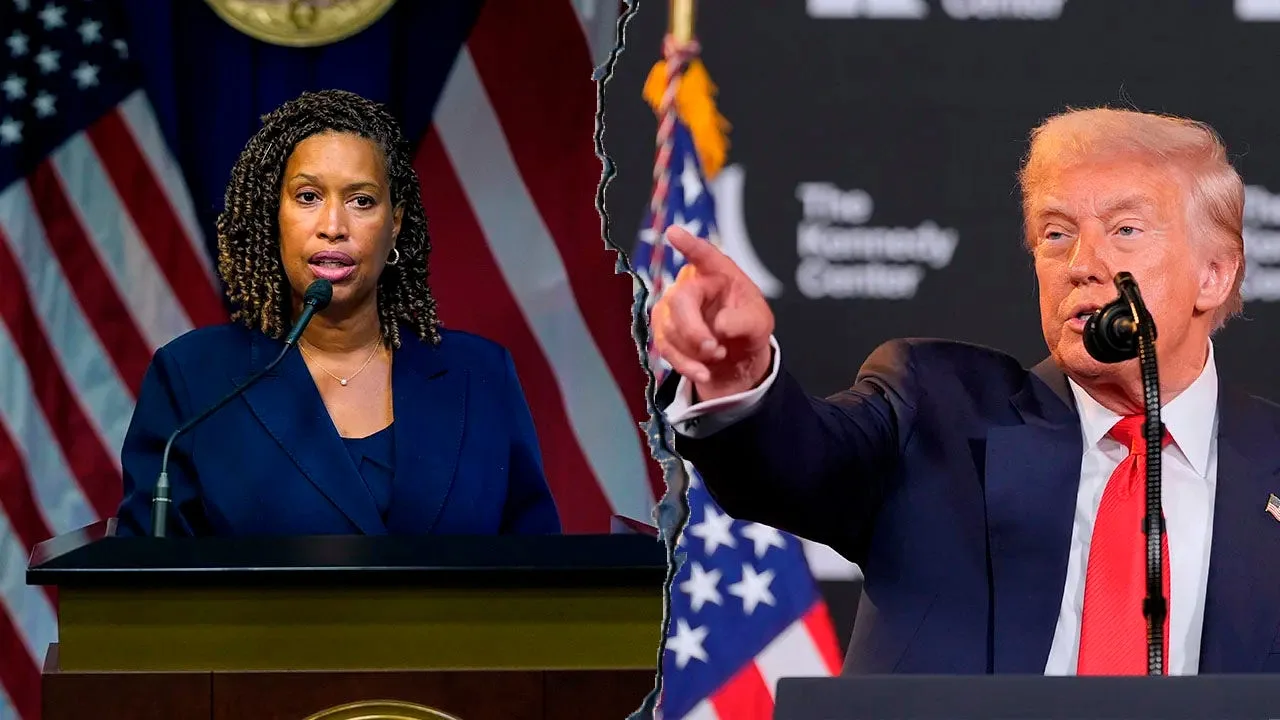President Donald Trump recently praised Washington, D.C. Mayor Muriel Bowser for her cooperation with his administration in reducing crime through the deployment of the National Guard. Trump credited Bowser’s leadership as a key factor in the significant decline in crime rates, marking a rare moment of bipartisan collaboration.
Tragic Death of Neilyann Ysam: Domestic Violence Claims Another Life in Portland, Oregon
What Happened: Trump’s Public Praise for Bowser
President Trump took to social media to commend Mayor Muriel Bowser’s efforts to address rising crime rates in the nation’s capital. He highlighted her willingness to work with federal authorities, stating that this cooperation played a major role in reducing crime.
Trump claimed that 25% of D.C. residents expressed gratitude for these efforts and suggested that Bowser’s approach stood out compared to other Democratic leaders, as she chose action over rhetoric. He also reflected on the challenges during civil unrest and emphasized the necessity of federal support in restoring law and order.
Additionally, Trump warned against policies he described as “woke” approaches to law enforcement, urging Bowser to maintain her current strategy for crime prevention.
Who Is Mayor Muriel Bowser?
Muriel Bowser is the current Mayor of Washington, D.C., widely recognized for her efforts in urban governance and crime reduction. Throughout her tenure, she has faced challenges in balancing law enforcement measures with community safety initiatives.
Recently, Bowser made headlines for collaborating with the Trump administration to deploy the National Guard, a decision that contributed to a measurable decrease in crime. Her leadership during this period has earned her praise from local residents and political figures, and her approval rating has reportedly increased as a result of these efforts.
Background: Rising Crime and Federal Intervention
The partnership between Trump and Bowser emerged during a time of heightened civil unrest and increasing crime rates in Washington, D.C., particularly following the 2020 George Floyd protests.
Bowser’s administration faced surging violent crimes, including a spike in carjackings, prompting her to seek federal assistance. The deployment of National Guard troops resulted in a dramatic 87% decline in carjackings.
Former Attorney General Pam Bondi also reported 1,599 arrests and the seizure of 165 illegal firearms, showcasing the impact of the coordinated crackdown.
Public and Social Media Reaction
Public response to this cooperation has been mixed. Supporters praised Bowser for prioritizing public safety over political differences, noting the positive effect on crime rates. Many social media users applauded her pragmatic approach to governance.
However, critics raised concerns about the role of the National Guard in local law enforcement, arguing that long-term solutions require systemic reforms rather than temporary measures. Trump’s comments sparked debates online regarding the efficacy of federal intervention in local policing strategies.
What Happens Next? Future Plans and Policy Implications
In her official statement, Mayor Bowser acknowledged the benefits of federal collaboration, emphasizing the sharp decline in violent crimes such as carjackings. She reaffirmed her administration’s commitment to public safety and willingness to work with federal partners when necessary.
Meanwhile, President Trump signaled plans to extend similar federal support to other cities facing crime-related challenges. Ongoing discussions on crime prevention, policing policies, and federal involvement are expected to shape future strategies for urban safety.
Conclusion: A Turning Point for Crime Reduction in D.C.
The partnership between President Donald Trump and Mayor Muriel Bowser highlights the importance of collaboration over politics when it comes to public safety. The results—lower crime rates, more arrests, and safer neighborhoods—demonstrate that effective strategies require joint efforts.
As the conversation on law enforcement policies continues, the success in Washington, D.C. may serve as a model for other cities grappling with similar challenges.

